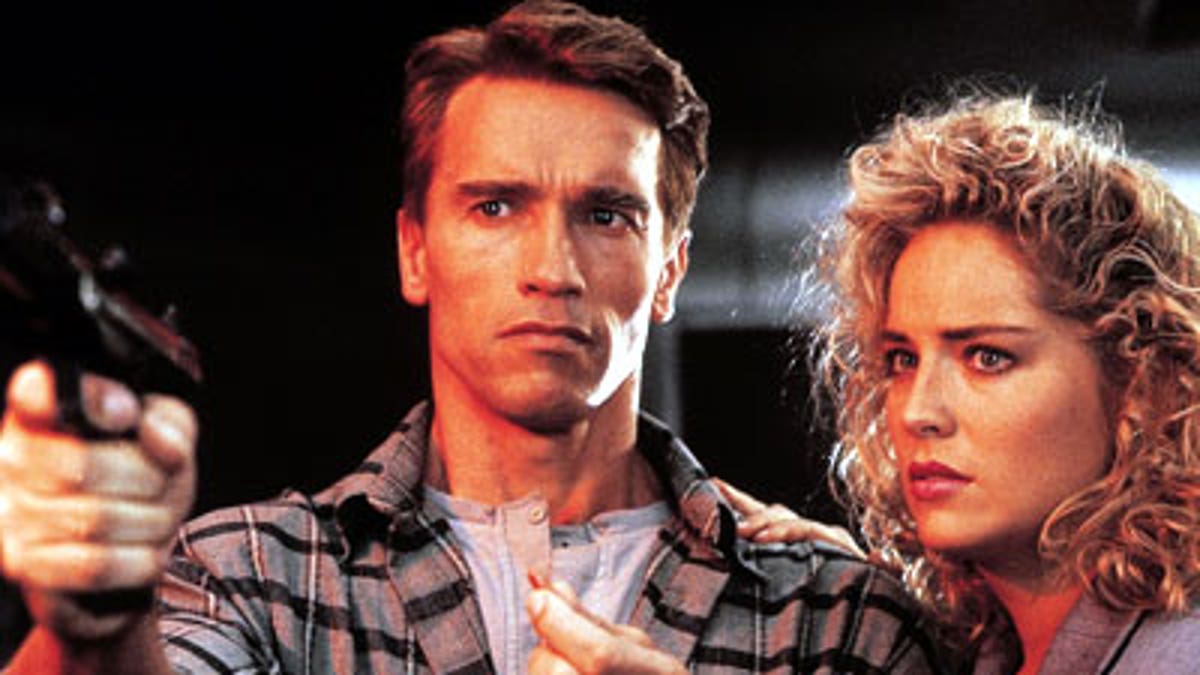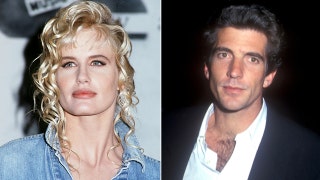
(Carolco)
Revive, remake, repackage, reboot – whatever you want to call it, one thing is clear: Hollywood likes looking back better than it likes looking forward.
Take the upcoming remake of the Arnold Schwarzenegger/Sharon Stone 1990 sci-fi classic 'Total Recall.' Due for 2012 release, it now stars Bryan Cranston ('Breaking Bad') and Jessica Biel (Justin Timberlake).
“It is quite different, it’s a reinvention of the characters and the whole story,” Biel told FOX411’s Pop Tarts. “It is really based in reality, it’s raw, darker, and grittier (than the original) and the relationships between the characters are what we’re focusing on … we’re really focusing on the emotional aspect.”
The emotional aspect of 'Total Recall'?
Riiiiiiiight.
In fact, over the next 12 months, audiences can expect to see a new episode or version of "Planet of the Apes," “The Avengers,” “Spider-Man,” “Fright Night,” “The Great Gatsby,” “When Worlds Collide,” “RoboCop,” “Don’t Be Afraid of the Dark,” “The Thing,” “Creature from the Black Lagoon,” “The Raven,” “Girl With the Dragon Tattoo,” “Red Dawn” and “Footloose.”
Add those to recent updated versions of “Winnie the Pooh,” “Clash of the Titans,” “Karate Kid,” “Alice in Wonderland,” “Charlie and the Chocolate Factory,” “War of the Worlds,” “Arthur,” “Charlotte’s Web,” “The Tourist” and “A Nightmare on Elm Street.”
And déjà vu happens when you turn the television on too.
This fall ABC are bringing back the 1970s series “Charlie’s Angels,” FOX is awakening “The Flintstones,” MTV has its hands on “Teen Wolf,” and we’ve already been slapped with Aaron Spelling’s “90210” and “Melrose Place” on the CW, while NBC re-imagined “The Bionic Woman” and “Knight Rider.”
It's like Hollywood has become fixated with their word processors' "cut" and "paste" functions.
“Hollywood has PC'd itself to death, and in the process killed whole categories of content. Where studios once made memorable movies, they now produce schlocky teen flicks filled with bad language, sex and stupidity,” said Dan Gainor, VP of Business & Culture at the Media Research Center.
But according to film expert and founder of GeekActually.com, David McVay, it isn’t that the entertainment industry has no new ideas to share. It is instead a case of studio executives being driven by an ever-increasing focus on the bottom line.
“The Hollywood system is only after huge box office returns. They have huge studios and infrastructure to pay for. There are a lot of great original films ready to be made out there, [but] most are falling to the independent scene because they are more willing to take risks,” he said.
Dipping into earlier eras means studios can profit from nostalgia, and the get the bonus of previous, free marketing.
“Producers are looking for built-in audiences so they don’t have to start from scratch. Remakes give them a giant audience and head start,” explained Adam Hanft, CEO of marketing firm Hanft Projects. “But at the same time, passion audiences are quick to turn against a remake for not being as good as the original."
“Each remake loses something from the original. Why remake ‘True Grit’ with John Wayne? Even if you do a good job, it will never be as good as the original,” Gainor said. “But as long as Hollywood is scared to produce new movies, we will be stuck with remakes as the only safe way for them to make money.”
And today, the remake machine is reaching new heights (or depths, depending on your perspective).
“[The] 'Clash of the Titans’ [remake] was awful but it made so much money [$164 million domestically that the sequel is in the works," said McVay. "And we really have hit bottom if we are making sequels to remakes.”














































